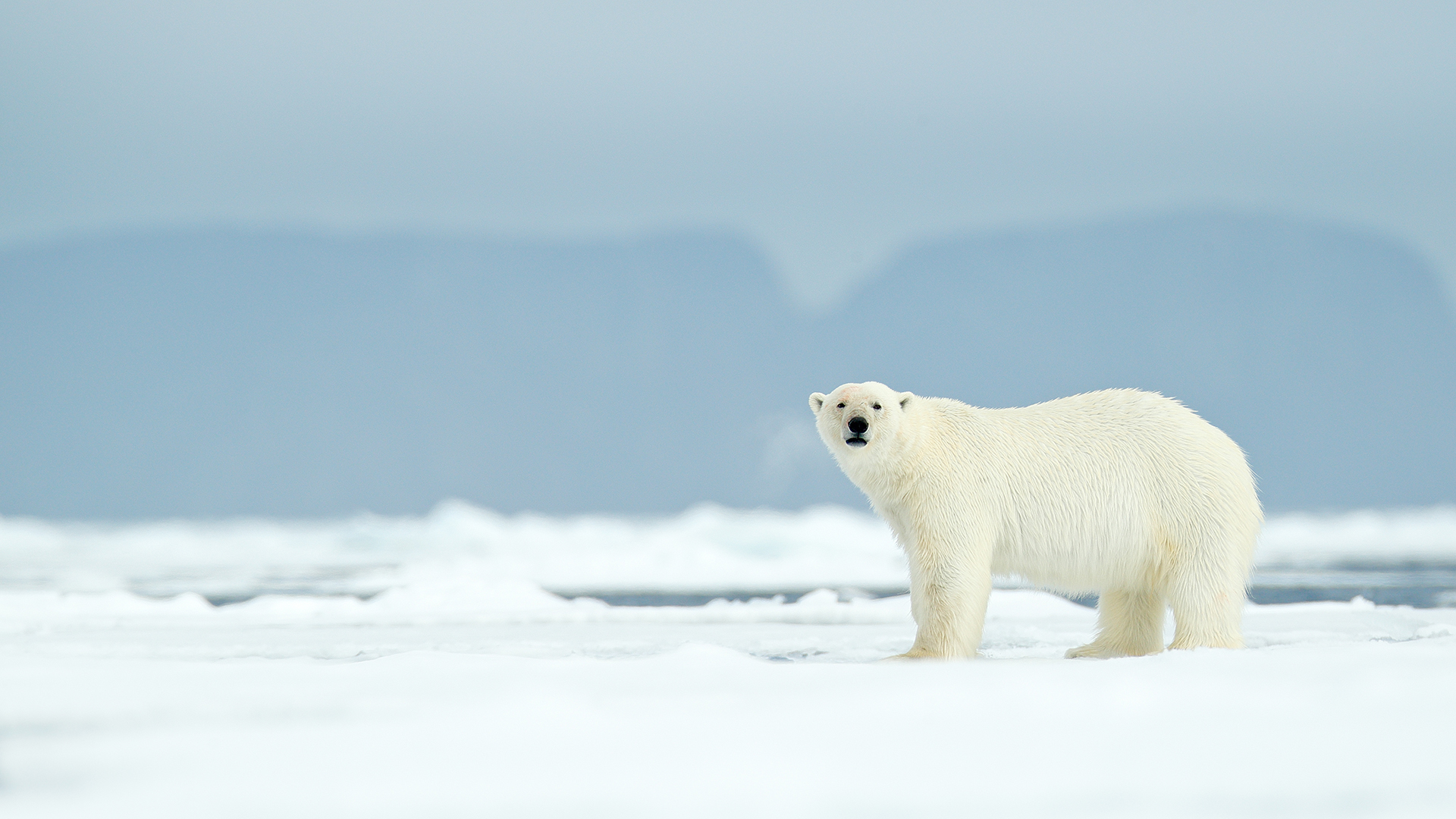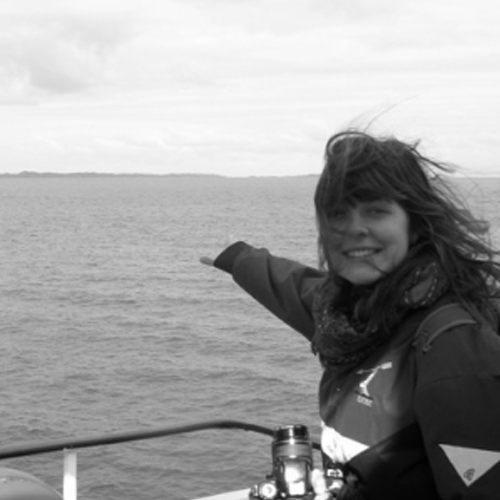Who Owns the Arctic?
It's been called the "new Cold War," but what's really going on in the Arctic?

In August, President Donald Trump made international headlines when he voiced an interest in buying Greenland, the world's largest island, which teeters on the edge of the icy Arctic Ocean. As it turns out, Greenland isn't for sale, and Trump was widely ridiculed for his diplomatic blundering. Yet, many wondered what could be behind this unprecedented move —and if it might have something to do with the United State's growing interest in owning a slice of the Arctic.
The U.S. is one of eight nations surrounding the Arctic — along with Canada, Denmark, Finland, Iceland, Norway, Russia and Sweden — that are all currently jostling for ownership of the region's frozen seas. Several of the countries have already submitted formal papers to a United Nations body, claiming portions of the vast Arctic seabed. Climate change is also opening up the Arctic's formerly ice-locked waters, making the region more accessible than ever before. "Based on current trends, the predictions of the Arctic being completely ice-free are [that it will happen] around 2040 or 2050," said Richard Powell, a polar geographer at the Scott Polar Research Institute at the University of Cambridge in the United Kingdom.
This surge of interest in the region has been dubbed the "scramble for the Arctic," or more sensationally, "the new Cold War," because Russia and the United States are big players. But despite the opportunities the region presents, can the Arctic Ocean really be owned by anybody? And why do so many countries want a stake in this landscape of drifting icebergs and polar bears?
Related: Why Is There So Much Oil in the Arctic?
There's a straightforward answer to the second question: The Arctic possesses massive oil and gas reserves. The seabed beneath the Arctic Ocean houses an estimated 90 billion barrels of oil — about 13% of the world's undiscovered oil reserves — and an estimated 30% of the planet's untapped natural gas, according to the U.S. Energy Information Administration.
A century ago, this immense mineral wealth would have been unreachable, because we lacked the technology to exploit it. Back then, countries were limited to exploring only a thin sliver of sea along their coasts, while areas of remote ocean, like the deep Arctic, were designated as high seas that belonged to no country. But with huge technological advancements in recent decades, remote stretches of ocean have become increasingly accessible. That's forced international lawmakers to play catch-up and expand the definitions of where countries can legally explore.
Currently, under a treaty called the United Nations Convention on the Law of the Sea (UNCLOS), signatory countries can exploit resources from the seabed out to 370 kilometres off their shorelines. But if a country can provide evidence that particular geological features on the seabed located farther out from that 200-mile limit are connected to the nation's continental landmass, then the country's jurisdiction can be expanded deeper into the sea.
Get the world’s most fascinating discoveries delivered straight to your inbox.
"[Countries] compile the data, make the claim, then the Commission on the Limits of the Continental Shelf [a U.N.-appointed body] rule as to whether they accept the reasoning or not," Powell told Live Science.
In the Arctic, this approach puts large swathes of once-untouchable ocean up for grabs by the surrounding nations, known as the "Arctic 8." Many of their claims now focus on the Lomonosov Ridge, a huge, deep-sea geological feature that stretches across the Arctic Ocean. Several nations posit that this ridge is an extension of their continental shelf, a claim that could grant them access to larger areas of Arctic seabed, and thus, vast mineral wealth.
The long game
All this points to a future in which different nations will indeed own chunks of the Arctic Ocean, each with varying degrees of power. Russia and Canada, for instance, are staking the two largest claims, which would inevitably give these nations more regional influence.
However, the divvying up of the Arctic isn't likely to happen very soon. For one thing, gathering evidence about the seafloor, crafting detailed reports and wading through the intricate science of nations' claims is an intensive procedure that's only just begun.
"The process of deciding on those claims itself is going to take possibly decades. Some people predict a couple of decades, but certainly years," Powell said. Even if countries get the go-ahead, they'll then have to shoulder the huge expense of getting their ships to the Arctic, building deep-sea infrastructure, and extracting oil and gas from miles beneath the surface.
"It's not just about melting ice. It's still an isolated environment. There are still difficult seas and icebergs, and it's very difficult to get insurance to operate," Powell said. "There's a whole set of other issues that are involved in whether that's practical."
Related: 10 Things You Need to Know about Arctic Sea Ice
At this stage, therefore, countries' claims to the Arctic are mostly anticipatory, said Amy Lauren Lovecraft, a professor of political science at the University of Alaska Fairbanks, and director of the Center for Arctic Policy Studies. "A lot of what's being divvied up doesn't have anything to do with immediate need. It's about 'let's get what we can under UNCLOS so that we have access to all of that space in the future,'" she said.
Still, should we be worrying now about what ownership will ultimately do to the Arctic, even if that reality is still decades away? Could nations' jockeying for oil access spark a war? And how will an influx of resource-hungry countries affect the region's fragile ecology?
Unchecked exploitation?
Powell said the effects on the Arctic will be determined by the general global situation when nations finally move in. "One could imagine a world where there's more conflict and anxiety about different things, and in that scenario, it would be bad news for the Arctic. But then you can also imagine increasing global organization to combat climate change," which might prompt states to work together to forge better environmental regulation, Powell said. "I definitely think it depends on other, wider issues."
Lovecraft said she is more cautiously optimistic. "If I put on my absolute environmentalist's hat, it's true, the Arctic will be used more." However, she added, "I don't think it's a race to the bottom." In other words, the Arctic will be owned and explored — but that doesn't necessarily mean it will be destroyed.
The reason is that too much hangs in the balance. For instance, the Arctic's frigid waters,already threatened by climate change, support food chains that benefit the entire planet. Lovecraft said that governments grasp the crucial importance of protecting that resource.
There's proof in the Arctic Council, established in the 1990s by the eight Arctic nations. It promotes cooperation among different countries and indigenous communities of the region, "in particular on issues of sustainable development and environmental protection in the Arctic," the council website says.
Lovecraft said that countries have a desire to safeguard political and environmental stability in the region; they’re not blindly hurtling towards disaster. "People tend to think only about the Arctic in environmental terms, or in these old, Cold War terms. But it's far more nuanced, and there's a lot of goodwill," she said.
This cooperation might also become increasingly crucial as other, non-Arctic nations, like China, grow interested in the region. "They're never going to be an Arctic country, but they have money. They will use that soft power to create joint ventures [with Arctic nations] and all other kinds of ways to be in the Arctic," Lovecraft said. A major question then becomes whether the Arctic 8 will band together to protect the region from exploitation, Lovecraft said.
She added that a fixation with the national "scramble for the Arctic"' could be distracting people from a larger and more immediate threat to the region: climate change. Ownership will change the face of the Arctic, but climate change is shaping the landscape irrevocably, right now.
"We're not going to have a war anytime soon in the Arctic. What we are going to have is a fundamental disruption in the ecosystem," Lovecraft said. "What can [the eight Arctic countries] do to better steward this resource? Why not put more energy into protecting that future, for the common good of mankind?"
- If Global Warming Is Real, Why Is It Still Snowing?
- How to Reach the North Pole in 5 Snowy Steps
- How Would Just 2 Degrees of Warming Change the Planet?
Originally published on Live Science.


Emma Bryce is a London-based freelance journalist who writes primarily about the environment, conservation and climate change. She has written for The Guardian, Wired Magazine, TED Ed, Anthropocene, China Dialogue, and Yale e360 among others, and has masters degree in science, health, and environmental reporting from New York University. Emma has been awarded reporting grants from the European Journalism Centre, and in 2016 received an International Reporting Project fellowship to attend the COP22 climate conference in Morocco.
 Live Science Plus
Live Science Plus






